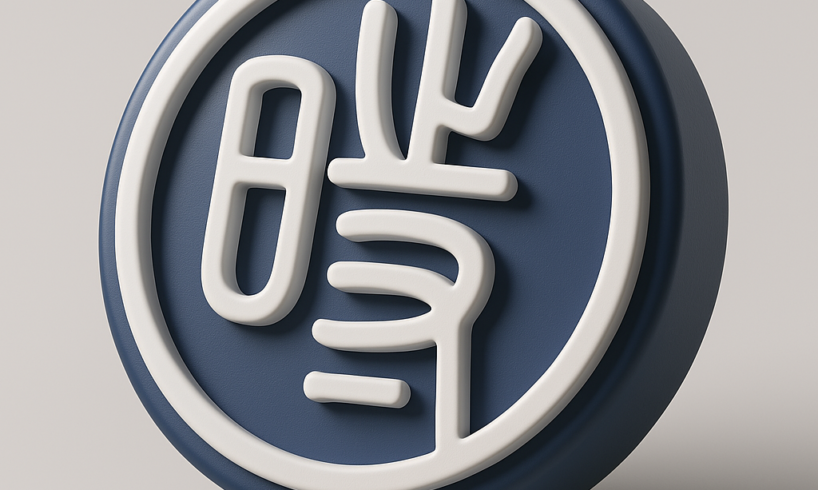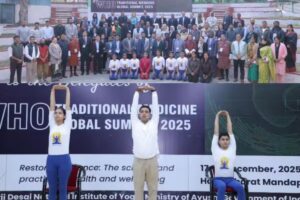
Taiwanese singer Zheng Zhihua’s complaint about a difficult experience boarding a flight at Shenzhen’s main airport has spurred heated online debate about barrier-free access for disabled people in China. Both Zheng and the airport offered apologies and Zheng, after being attacked online for the way he worded his complaint, has reportedly deleted his Weibo account. The 63-year-old singer, who performs frequently in both China and Taiwan, is well-known on both sides of the strait for such hit songs as “Sailor,” “Star Lighting,” “The Great Citizen,” and “33 Pieces.” Zheng, who contracted polio at the age of two, uses metal leg braces, crutches, and a wheelchair as mobility aids.
On October 25, Zheng posted to his Weibo account about the impediments he encountered while boarding a Shenzhen-Taipei flight at Shenzhen’s Bao’an International Airport. Boarding took place at a remote gate, necessitating the use of a mechanized lift, but Zheng was unable to wheel his chair onto the plane or use his crutches to get through the door, because the lift was stopped about 25 centimeters (10 inches) short of the level of the plane’s entrance. Describing the airport’s attitude toward disabled people as “inhumane,” Zheng complained that “the lift operator, with utter disregard for my safety, stubbornly refused to raise the platform any higher and looked on coldly as I scrambled my way onto the plane.” (The phrase that Zheng used, “连滚带爬,” liángǔndàipá, literally means to “roll and crawl,” but it is used metaphorically to describe frantic or awkward scrambling.)
Thousands of commenters posted supportive messages and the hashtag “#Zheng Zhihua Angrily Criticizes Shenzhen Airport” (郑智化怒斥深圳机场, Zhèng Zhìhuà nùchì Shēnzhèn Jīchǎng) became a trending topic on Weibo. Shenzhen airport promptly apologized, explaining that the gap between lift and door was due to airport safety regulations designed to prevent equipment from damaging the plane’s fuselage, and announced immediate improvements, including increased staffing and the introduction of ramps. But things took a turn when a surveillance video was leaked online, presumably by the airport, that showed Zheng boarding the plane with the assistance of two ground-crew members on the lift platform with him and several flight attendants standing inside the door of the plane. The video clearly captures the sizeable gap between the platform and the door, the awkward delay as the various parties strategize about how to help Zheng onboard, and a moment when Zheng—standing up from a wheelchair and stepping up into the plane with the aid of his leg braces, crutches, and a push from one of the ground-crew members—appears perilously close to losing his balance and falling into the gap.
Despite this, the video fueled fierce online backlash against Zheng, with some commenters accusing him of exaggerating the situation (since he didn’t literally “crawl” onto the plane), or of being entitled, petulant, or even intent on smearing China. In a follow-up Weibo post on October 27, Zheng apologized for any misunderstanding stemming from what he described as a “poor choice of words” made “in a moment of frustration.” He also praised the ground- and flight crew for their assistance, and concluded by saying that “the attention this incident has brought to the interests of minority groups holds greater significance than my personal experience, and I leave it to society for discussion.” But as of November 3, after a week of weathering various personal attacks from online trolls, Zheng appears to have deleted his Weibo account.
CDT Chinese editors have archived a dozen recent articles and essays about the controversy over Zheng’s airport experience, his initial complaint, the online attacks against him, his subsequent apology, and the many impediments facing people with disabilities in China. Among these is a notable op-ed from the Economic Observer, saying that Zheng was not obliged to apologize, for he did nothing wrong, and another article from a blogger praising the Economic Observer for its willingness to speak out on the issue. Some of the posts include screenshots or transcriptions of the vitriolic criticism lobbed at Zheng, attacks which likely led to Zheng’s decision to delete his Weibo account. Our editors have also put together a compilation post with netizen comments and excerpts from some of the archived articles and essays. Some of these have been translated below.
“Zheng Zhihua Doesn’t Need to Apologize,” from the Economic Observer:
Does Zheng Zhihua really need to apologize? He may have used some emotionally charged language, and although the lift wasn’t raised due to operational regulations, there were also service employees on hand to help him, but the difficulties he encountered were real, and he has every right to feel angry and to vent his complaints. If he wishes, Zheng Zhihua can of course choose to apologize for using harsh language, but that is his prerogative: he is under no obligation to apologize, much less to apologize because of public criticism. He did nothing wrong.
“It Is Idiotic and Evil to Politicize Zheng Zhihua’s Negative Experience,” by current-affairs blogger Xiang Dongliang:
Many idiots who have lost their minds due to excess imbibing of “positive energy” are utterly oblivious to the fact that we are all, first and foremost, human beings. Any differences after that—say between able-bodied and disabled people—are secondary. And after that, there are tertiary differences, such as between the type of passports held by mainland Chinese and their Taiwanese compatriots.
Before applying a political lens to scrutinize a given event, it’s essential to first use one’s brain and think it through: Does defending some “grand political objective” lend itself to the happiness and dignity of each of us, as individuals? Is labeling someone as an irreconcilable enemy conducive to achieving that grand objective? And might not there come a day when I, too, find myself facing the same predicament that he did? How would I cope then?
“In a Society That Favors the Strong, Aren’t We All Just Scrambling to Survive?” by Chengdu-based current-affairs blogger Zhang Feng:
Supposedly, some American online influencers who visited China have effusively praised us for being so advanced. Sure, China’s high-speed trains are much faster, the high-speed railway stations are impressive, and the subway trains run on time and make less noise …
Those things are all true, but it’s a perspective biased toward the strong and able-bodied. What they fail to notice is this: Why don’t we see any wheelchair users at high-speed rail stations?
When Zheng Zhihua was at Shenzhen Airport, he was in a sense, one of “the strong.” As a celebrity, if he raises an issue, it attracts attention. But out on the streets of Chengdu, say, a wheelchair user who encounters some difficulty has only one option: call up a friend or relative to come help.
I can also understand those who criticized Zheng Zhihua: the problems that he, Zheng Zhihua, experienced are problems that make up our daily reality. Although most people are able-bodied and don’t need to use a wheelchair, in a society that favors the strong, you will always be at some disadvantage. Your legs may work well, your vision may be perfect, but when you come up against power or an unyielding obstacle, you too will be forced to crawl.
Zheng Zhihua spoke out about this, and caused a big fuss. This makes some people uncomfortable. We’ve all had to endure it, they think, so why should he be any different from us?
“The Online Harassment of Zheng Zhihua Is Baffling,” by WeChat blogger Princess Minmin:
Demands on individuals in the public-opinion sphere are becoming increasingly harsh, resulting in some extreme incidents. After the flooding in Zhengzhou, for example, the father of one of the deceased was accused of harboring “ulterior motives” simply for wearing a raincoat and mask while riding a bicycle to mourn his daughter. In fact, he was wearing the dark blue raincoat he wore when he last saw his daughter, the sunglasses and mask she had given him, and pushing the old-fashioned bicycle he had used to transport her back and forth to school every day. The mother of an elementary school student who was killed in a campus hit-and-run in Wuhan was subjected to all manner of malicious comments, just because she was well-dressed, polite, and restrained in her speech. Those people seemed to think that after losing a child, a mother should be disheveled, hysterical, and incoherent. In the end, that mother who lost her beloved son jumped from a tall building, taking her sorrow and loss into eternity. Now, because of his use of the term “crawling,” Zheng Zhihua has incurred a torrent of online criticism and abuse.
“The Controversy Surrounding Zheng Zhihua’s ‘Crawling’ Stems From Two Different Frames of Reference,” a now-deleted article by WeChat blogger Xu Peng:
Zheng Zhihua has long lived in Taiwan, a society that prioritizes caring and consideration for vulnerable groups. In such a society, disabled people have access to barrier-free facilities and humane treatment when traveling. Coming to a place that offers insufficient care and consideration for disabled people, it is only natural that he would feel uncomfortable. Many netizens suspected him of exaggerating because he didn’t literally have to “crawl” onto the plane, but as someone accustomed to eating fine grain, he naturally found our coarser bran hard to swallow. Whereas Chinese netizens, accustomed to even less edible fare, think they’ve got it pretty good when they get a bite or two of coarse bran. This is the gap in understanding caused by two different groups of people operating under two very different frames of reference.
Other online comments, from Weibo and WeChat:
杨笑汝:The video of Zheng Zhihua boarding the plane is quite easy to understand. He had hoped not to trouble anyone, to handle things on his own by maneuvering the wheelchair by himself. But it didn’t work out that way, and he had to rely on others to lift him through the entrance. Many people cannot grasp the humiliation of being forced to rely on others for something you’re perfectly capable of doing yourself.
纽太普同学:A disabled man in his sixties felt humiliated and spoke harshly about a lack of barrier-free access when boarding a plane. Online critics complained, “He didn’t actually ‘crawl.’” And the airport’s response was to broadcast that humiliating experience, to prove “he didn’t crawl.”
春天情书Haru:I’ve been watching this whole argument over Zheng Zhihua’s complaint about Shenzhen Airport drag on all day. This could have been an opportunity to make facilities more accessible, allow disabled people to travel more independently, and reduce the need for airport staff to assist them every single time. What could have been a win-win situation devolved into people nitpicking over words and arguing about a few poorly chosen phrases. It’s totally pointless and doesn’t solve any problems.
周云蓬 (Zhou Yunpeng, a well-known blind folk singer, songwriter, and poet originally from Shenyang, Liaoning province): What Zheng Zhihua wanted was dignity, but many people feel that dignity is non-essential. I think that’s where the disagreement lies: some people tacitly accept a lack of dignity in their own lives, and by extension, they don’t feel that others are deserving of dignity, either! [Chinese]
Overall, most of the archived comments and articles agree on the need for better accessibility and barrier-free travel; more empathy for the needs of elderly or disabled members of society; and more respectful public discussion of these issues. Too many of China’s 85 million disabled individuals encounter significant impediments in their daily lives that make it difficult for them to work, study, travel, and participate fully in society.





